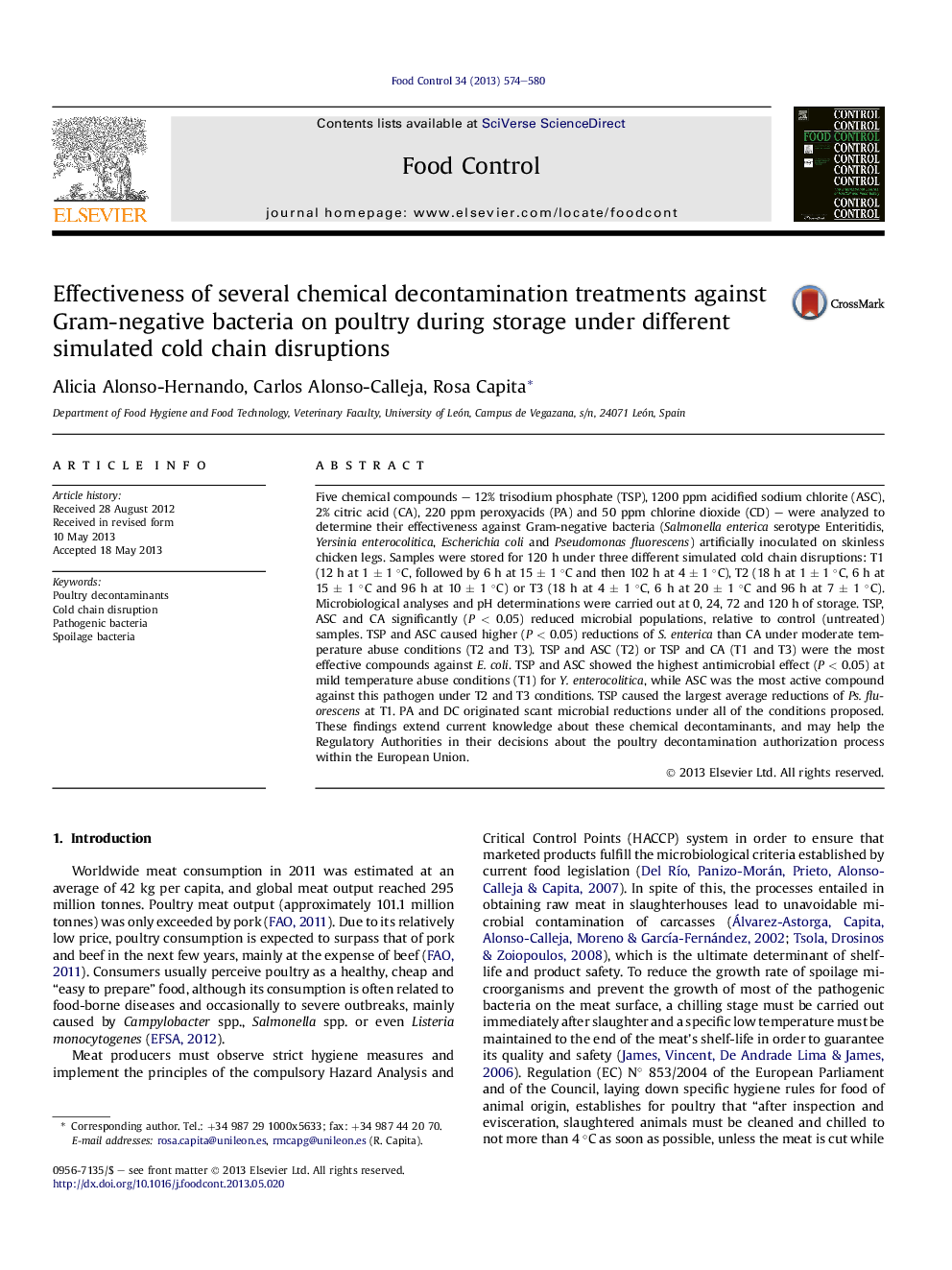| کد مقاله | کد نشریه | سال انتشار | مقاله انگلیسی | نسخه تمام متن |
|---|---|---|---|---|
| 6392375 | 1330438 | 2013 | 7 صفحه PDF | دانلود رایگان |
- The antimicrobial effect on poultry of five chemical decontaminants was assessed.
- After treatments, samples were stored under three abusive refrigeration temperatures.
- Inoculated Gram-negative bacteria were determined throughout storage (120Â h).
- Trisodium phosphate was the most effective compound at mild cold chain disruptions.
- Acidified sodium chlorite showed a marked effect under strong cold chain disruptions.
Five chemical compounds - 12% trisodium phosphate (TSP), 1200 ppm acidified sodium chlorite (ASC), 2% citric acid (CA), 220 ppm peroxyacids (PA) and 50 ppm chlorine dioxide (CD) - were analyzed to determine their effectiveness against Gram-negative bacteria (Salmonella enterica serotype Enteritidis, Yersinia enterocolitica, Escherichia coli and Pseudomonas fluorescens) artificially inoculated on skinless chicken legs. Samples were stored for 120 h under three different simulated cold chain disruptions: T1 (12 h at 1 ± 1 °C, followed by 6 h at 15 ± 1 °C and then 102 h at 4 ± 1 °C), T2 (18 h at 1 ± 1 °C, 6 h at 15 ± 1 °C and 96 h at 10 ± 1 °C) or T3 (18 h at 4 ± 1 °C, 6 h at 20 ± 1 °C and 96 h at 7 ± 1 °C). Microbiological analyses and pH determinations were carried out at 0, 24, 72 and 120 h of storage. TSP, ASC and CA significantly (P < 0.05) reduced microbial populations, relative to control (untreated) samples. TSP and ASC caused higher (P < 0.05) reductions of S. enterica than CA under moderate temperature abuse conditions (T2 and T3). TSP and ASC (T2) or TSP and CA (T1 and T3) were the most effective compounds against E. coli. TSP and ASC showed the highest antimicrobial effect (P < 0.05) at mild temperature abuse conditions (T1) for Y. enterocolitica, while ASC was the most active compound against this pathogen under T2 and T3 conditions. TSP caused the largest average reductions of Ps. fluorescens at T1. PA and DC originated scant microbial reductions under all of the conditions proposed. These findings extend current knowledge about these chemical decontaminants, and may help the Regulatory Authorities in their decisions about the poultry decontamination authorization process within the European Union.
Journal: Food Control - Volume 34, Issue 2, December 2013, Pages 574-580
